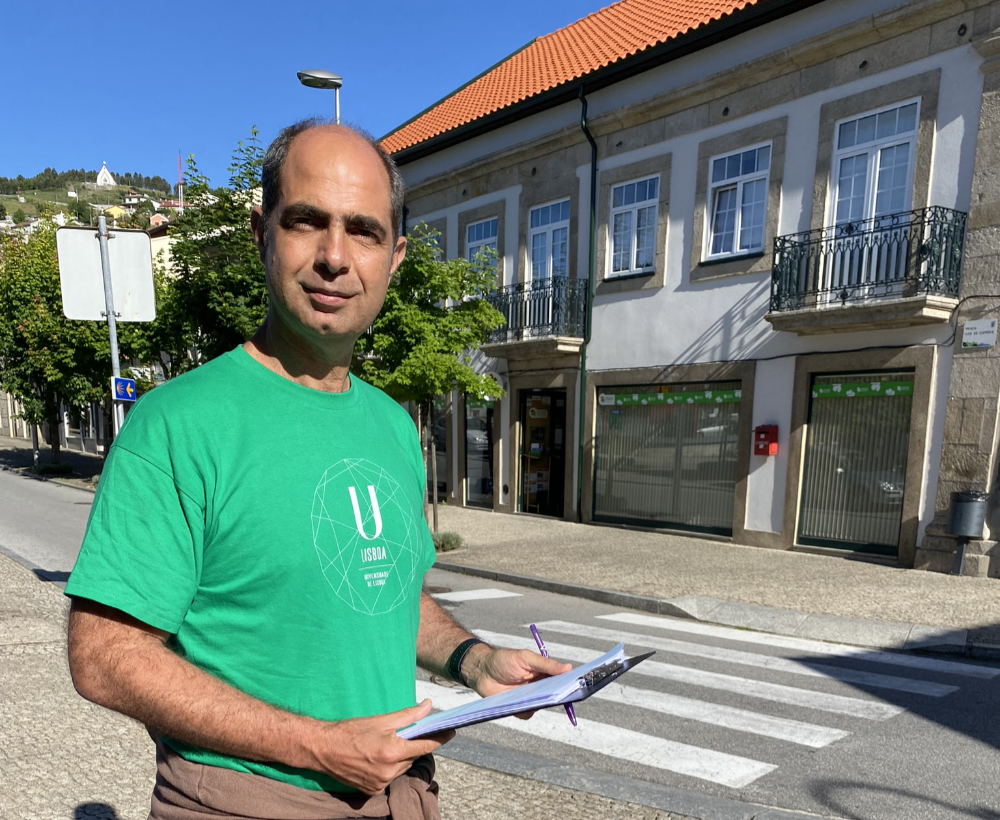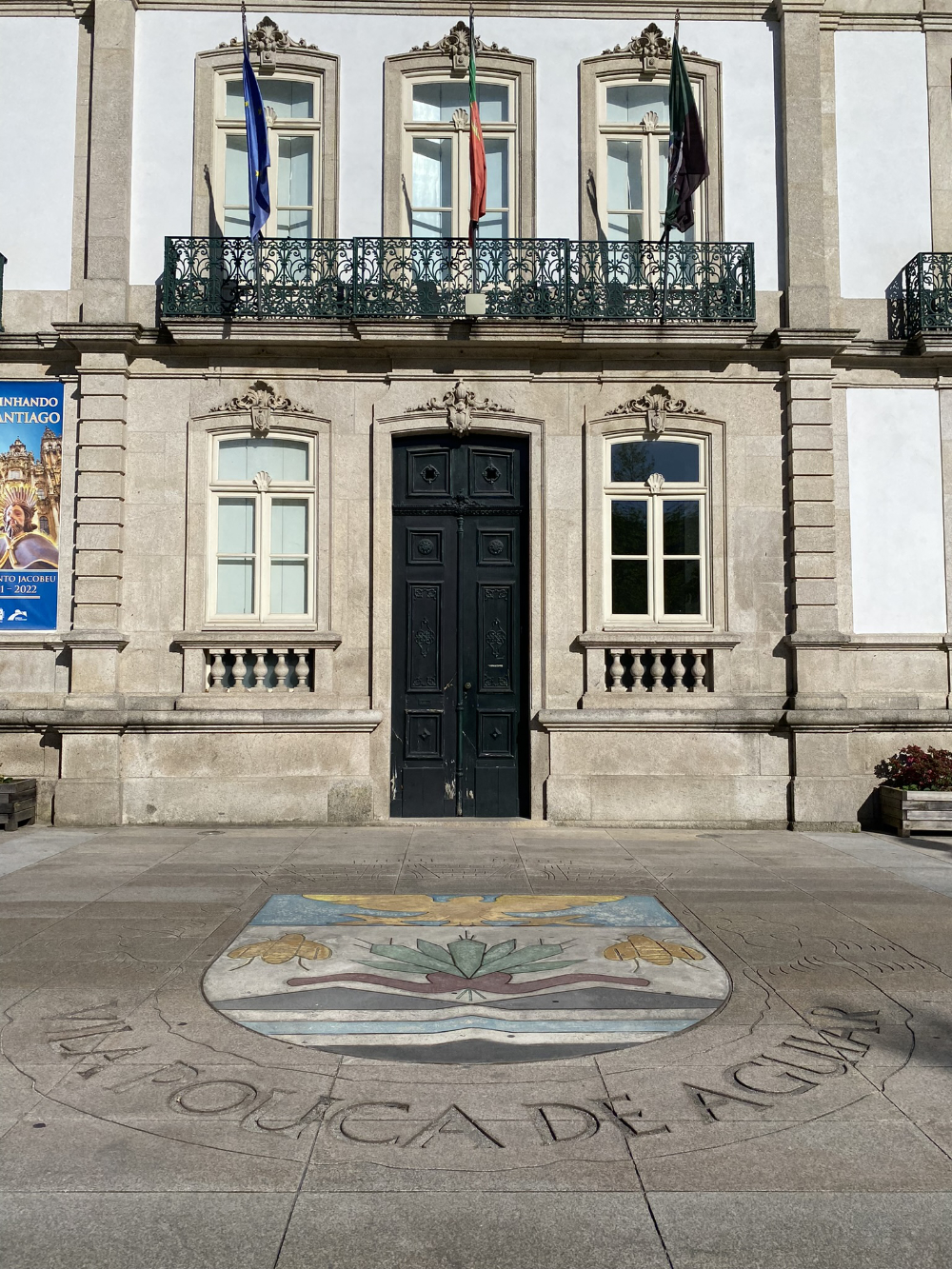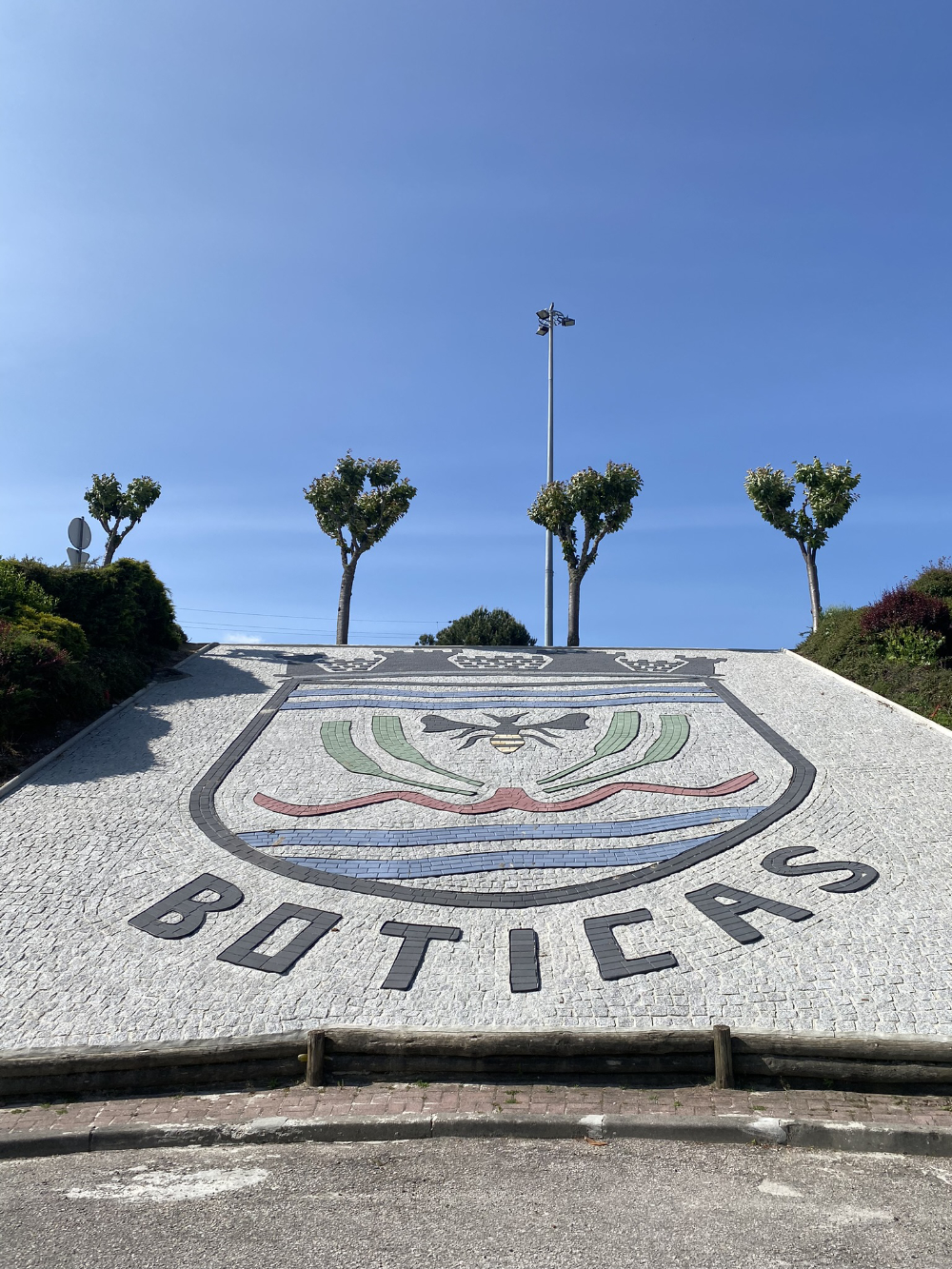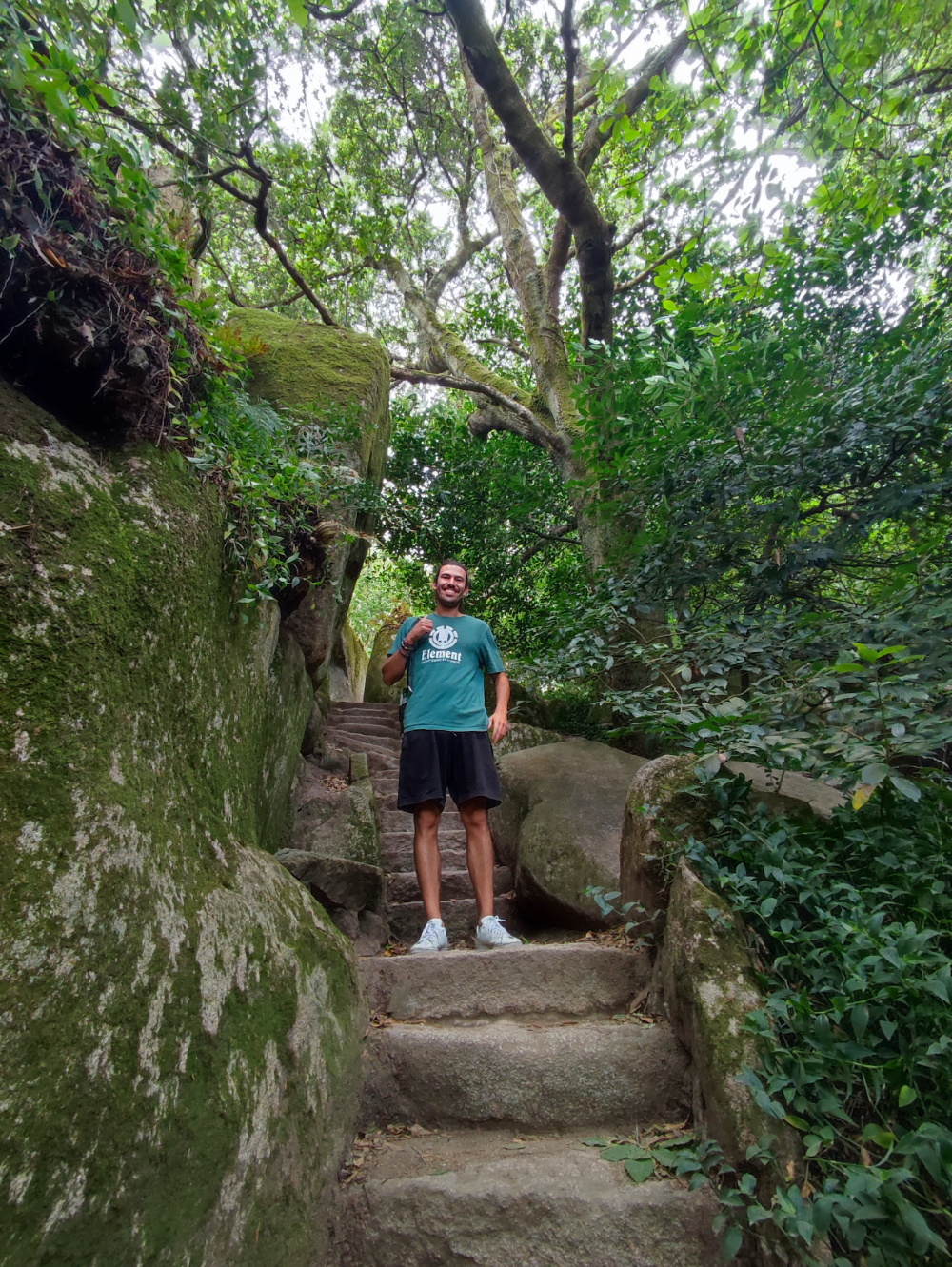
A new MSc student has just joined EcoPeak4Fish: Meet Gabriele Ferrari!
Gabriele Ferrari, 24 years old, is an Italian MSc double degree student of Environmental Engineering from Instituto Superior Técnico in Lisbon and of Environmental and Land Planning Engineering from Politecnico of Milan.

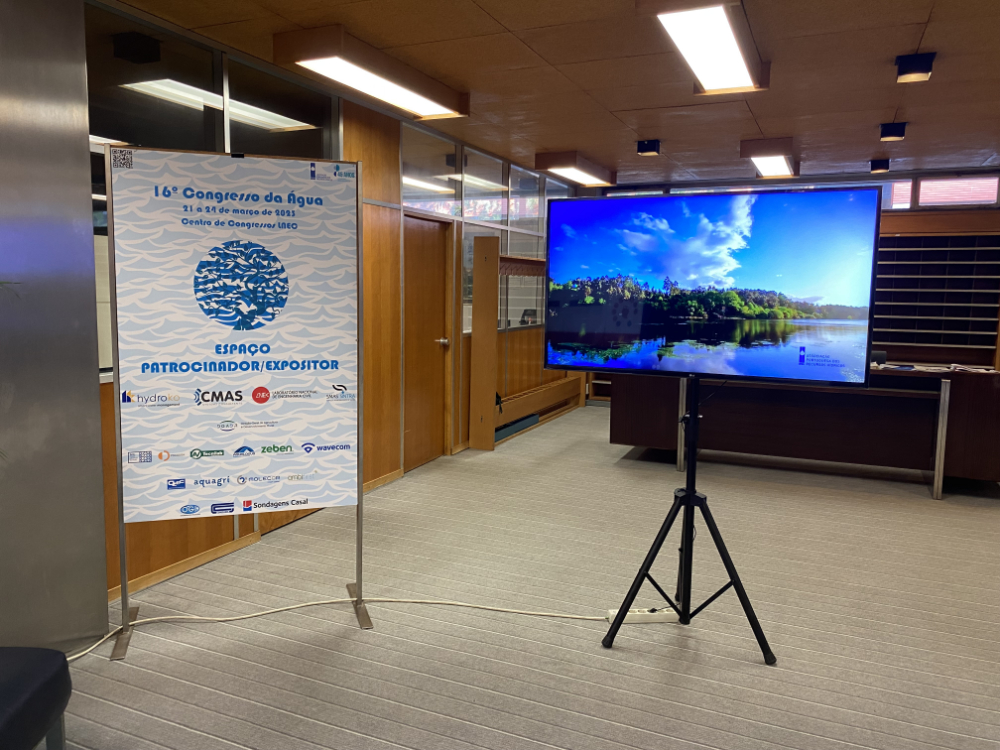
EcoPeak4Fish at the Portuguese National Water Congress
The 16th Portuguese National Water Congress took place from the 21st to the 23rd of March, opening at the emblematic World Water Day.
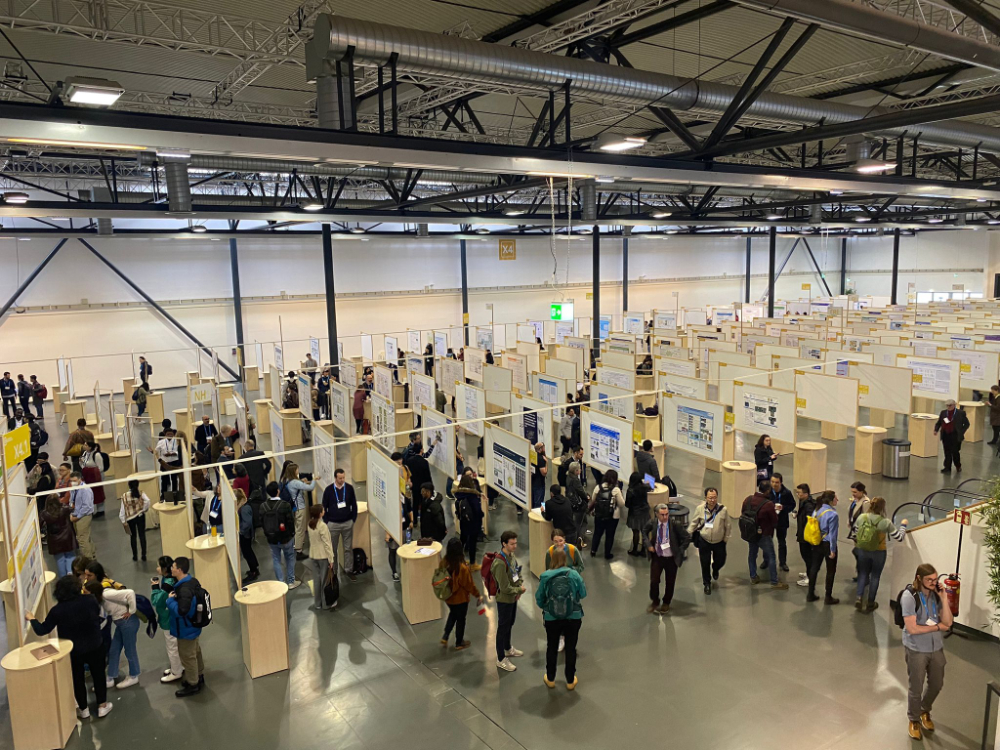
Presenting the latest results of EcoPeak4Fish at international conferences
In the first semester of 2023, the project researchers participated in diverse international conferences, to present the latest results of EcoPeak4Fish.

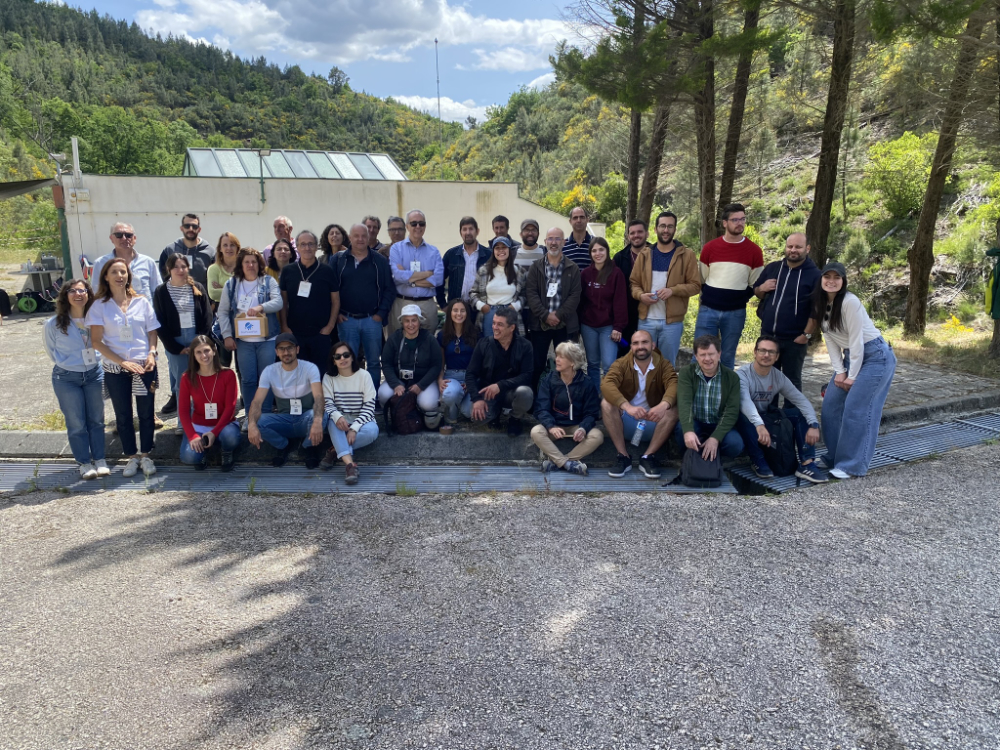
EcoPeak4Fish Disclosure Public Session in Boticas Municipality
The Disclosure Public Session of EcoPeak4FIsh took place in Boticas municipality this Spring, on the 12th of May 2023.
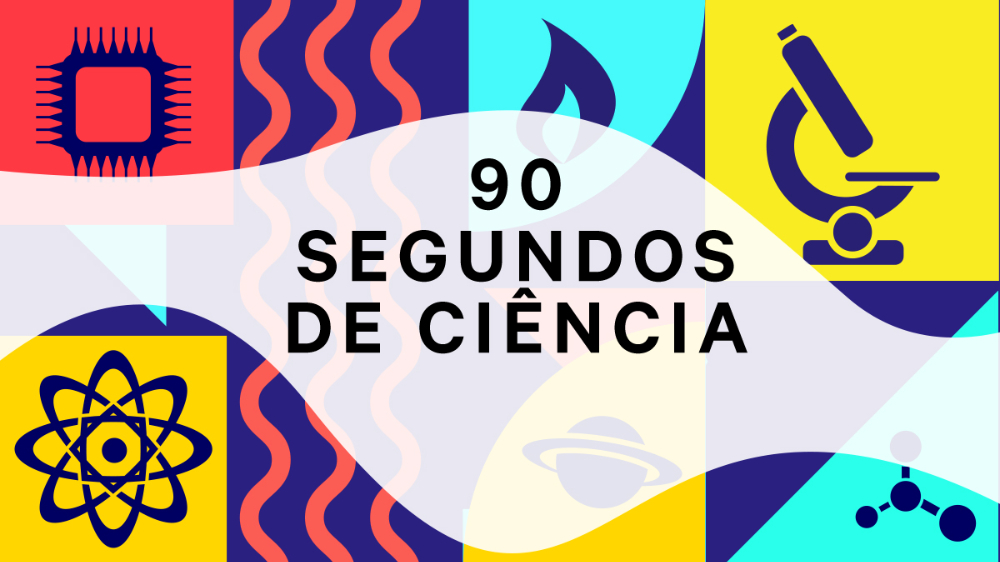
The EcoPeak4Fish at a national radio podcast
Isabel Boavida presented EcoPeak4Fish in the Portuguese podcast “90 segundos de ciência” (as in, 90 seconds of science).


Learning Norway’s best practices in hydropower production
Within the SHAREe project, funded by EEA Grants Portugal, we travelled to Trondheim, Norway
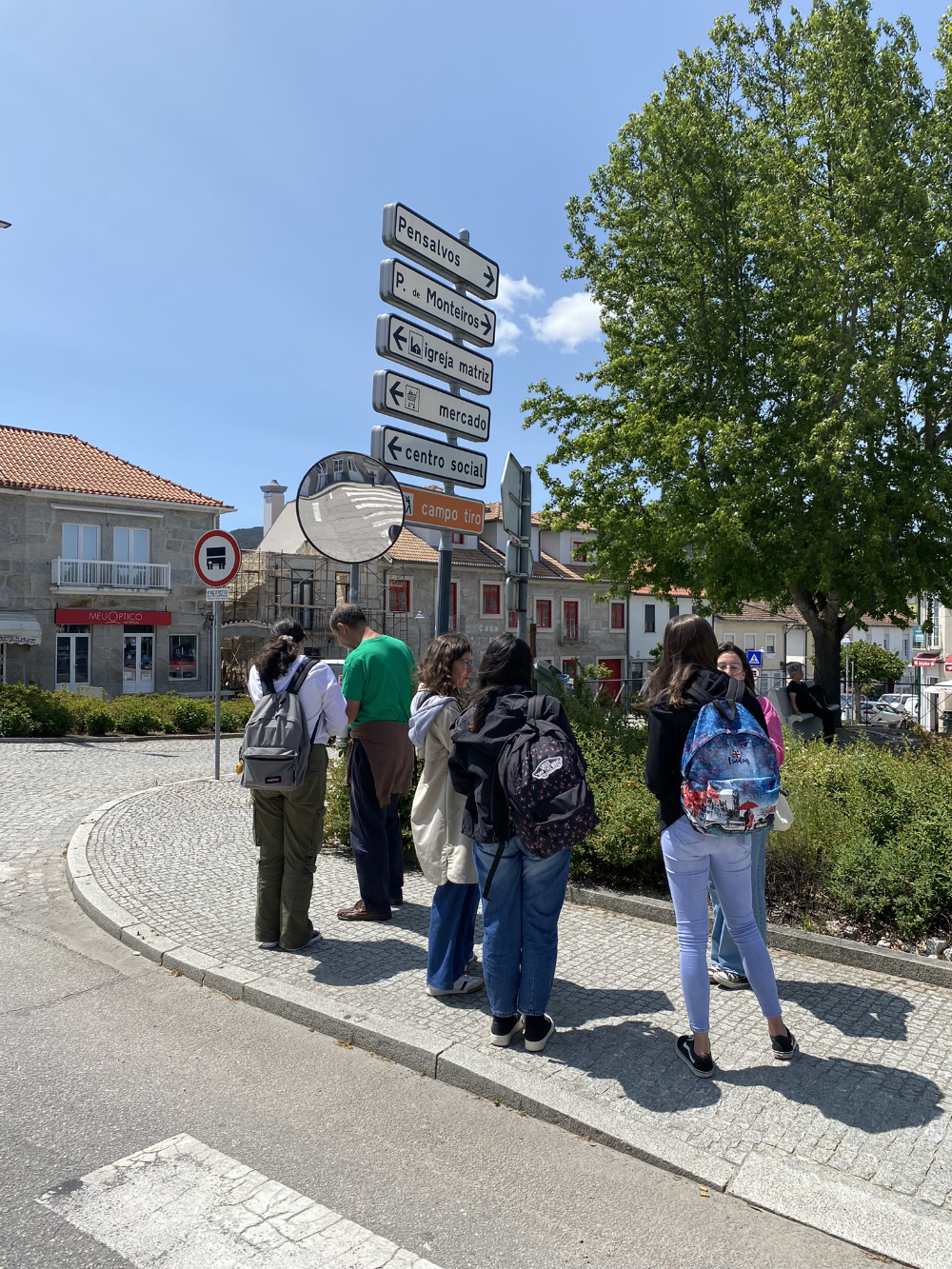
Interviewing the local community from Boticas and Vila Pouca de Aguiar Municipalities
The team members of EcoPeak4Fish interviewed the inhabitants of these two municipalities

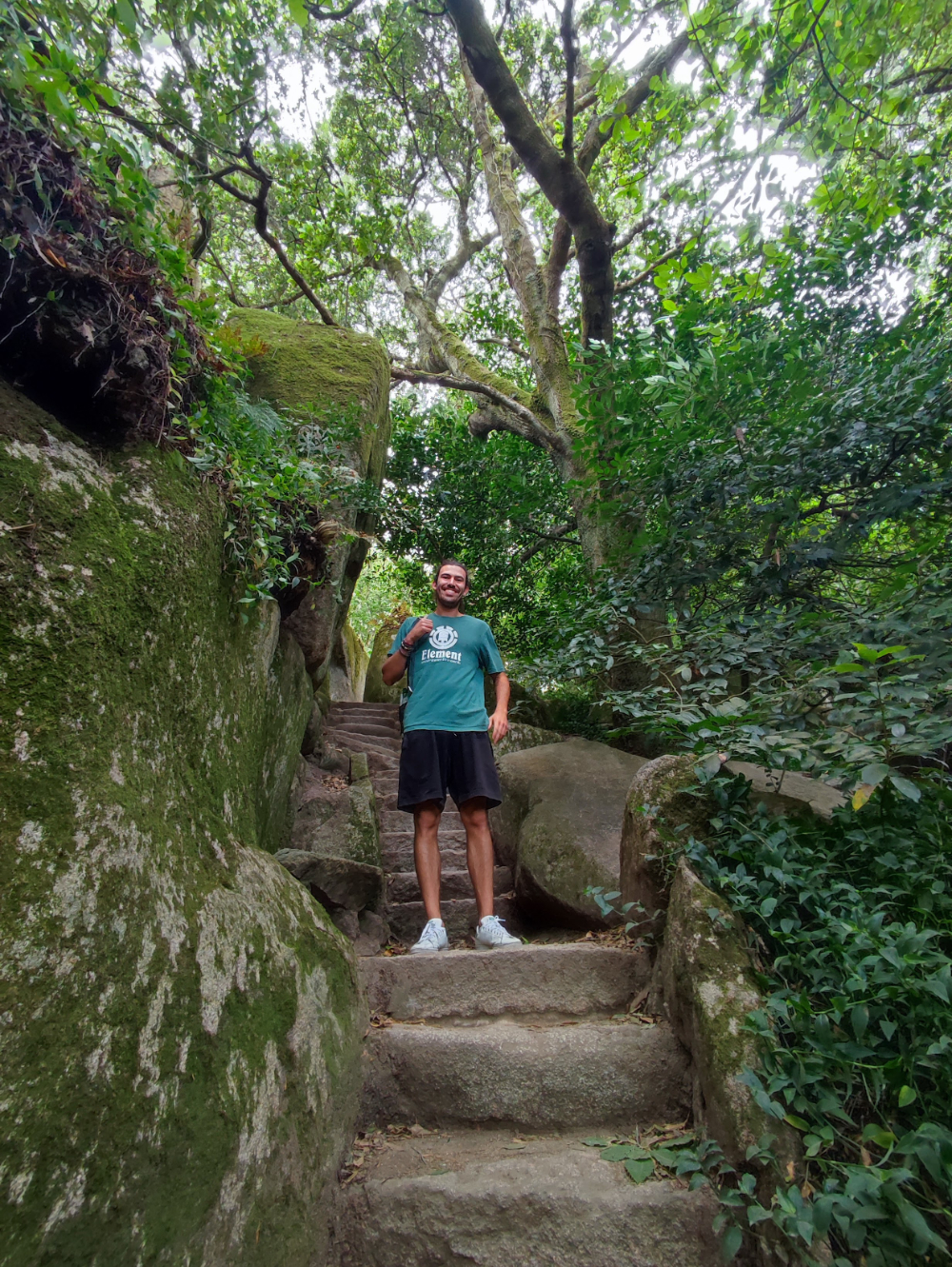
A new MSc student has just joined EcoPeak4Fish: Meet Gabriele Ferrari!
Gabriele Ferrari, 24 years old, is an Italian MSc double degree student of Environmental Engineering from Instituto Superior Técnico in Lisbon and of Environmental and Land Planning Engineering from Politecnico of Milan.
Two years ago he completed his Bachelor’s Degree in Environmental Engineering at Politecnico of Milan and “decided to challenge myself into a new experience, spending two years in a foreign country to appreciate all the little things that Portugal has to offer while studying in one of the best universities of the country” he affirmed.
He has previously worked as a volunteer in a small village in Tanzania, intending to help the local population with small jobs while exchanging cultural aspects with them.
Gabriele is the newest team member of the EcoPeak4Fish project. “The EcoPeak4Fish project caught my eye because it’s always fascinating to be able to apply mathematical models and equations to concrete examples. This allows us to see what is beyond the mere theory, finding solutions that can improve the behavior of complex systems and have positive impacts on the world”, he said.
Gabriele will mainly develop his work within task 4 of the project (Assessment of environmental and economic trade-offs in the operation of a hydropower plant), where he will be interested in (1) quantifying the effects of small hydropower plants on river ecosystem processes and functions; (2) modeling the behavior of the dam-river system; and (3) optimize it to find the better tradeoff between the profit of the energy company and the environmental quality of the river.
Welcome aboard, Gabriele!
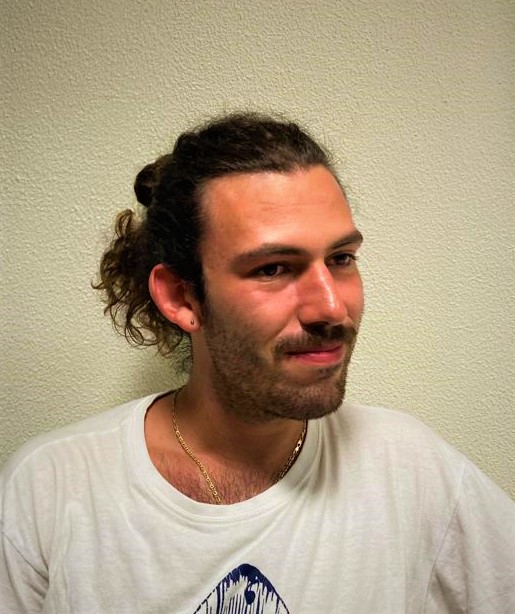

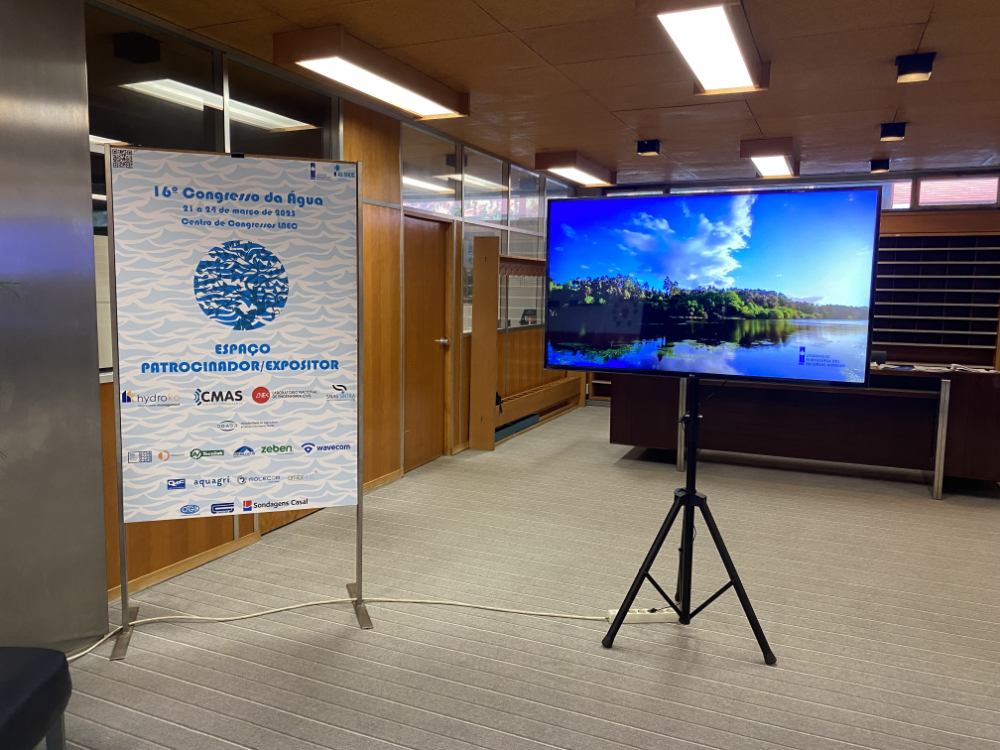
EcoPeak4Fish at the Portuguese National Water Congress
The 16th Portuguese National Water Congress took place from the 21st to the 23rd of March, opening at the emblematic World Water Day. Organized by the Portuguese Association of Water Resources, this is the most important conference addressing water challenges and opportunities in Portugal. This year, the conference took place at the National Laboratory of Civil Engineering, Lisbon, and was dedicated to the topic “To Live with Water”.
The team brought the topic of hydropeaking and sustainable hydropower to the conference, showing the diverse approaches to address this topic, presented by Isabel Boavida (IB) in the session “Threats to hydric systems: floods, water quality and other risks”. IB focused on the importance of addressing the impacts of hydropeaking on freshwater biodiversity and identifying mitigation solutions, especially in the context of global change. José Maria Santos (JMS) and Maria João Costa (MJC) presented in the session “Management of Water Quality and Ecosystems”. Each brought the latest project results regarding on-site and flume experiments, respectively. JMS presented the fish habitat assessment and preferences results, emphasizing the importance of preserved riparian corridors to fish habitat use in hydropeaking conditions, while MJC referred to the importance of flume studies to address individual and population changes associated with artificial flow variability.
This congress emphasized the transversal character of the water paradigm, bringing to the discussion scientists, technicians, policymakers and experts from the agriculture, environment, economy and technology sectors, all to discuss and act urgently on how to Live with Water.
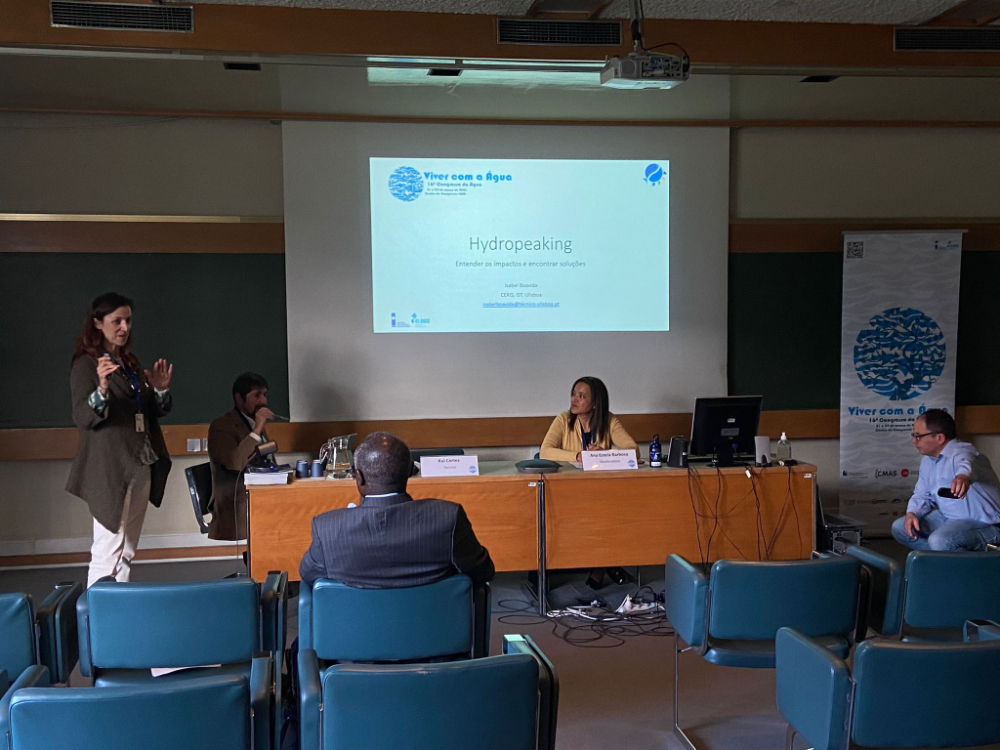
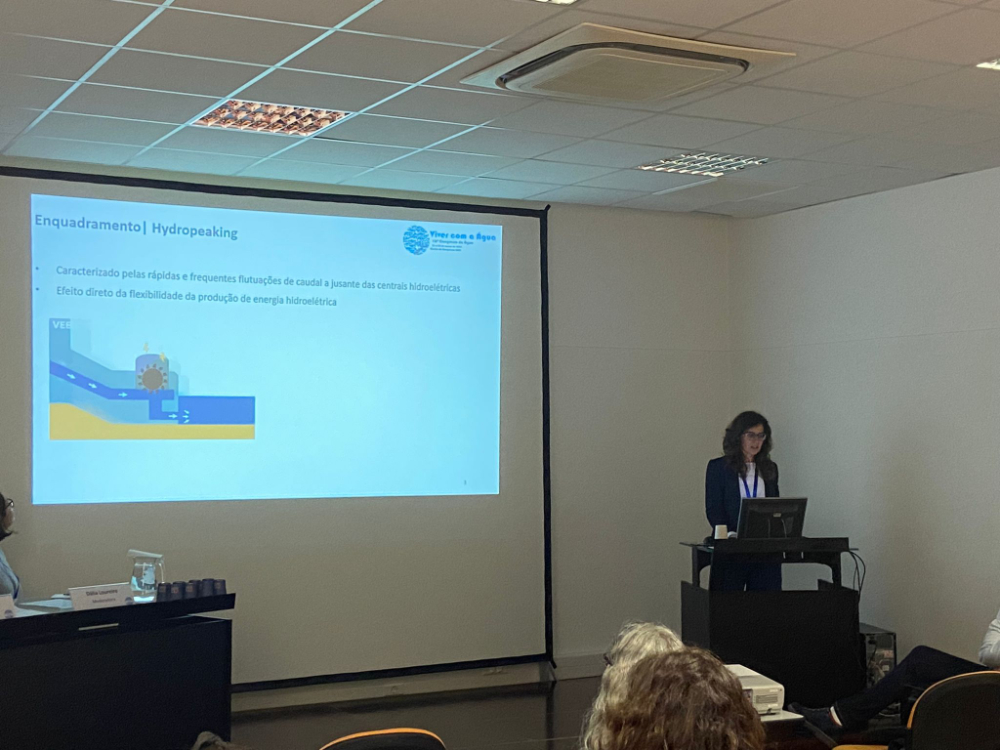
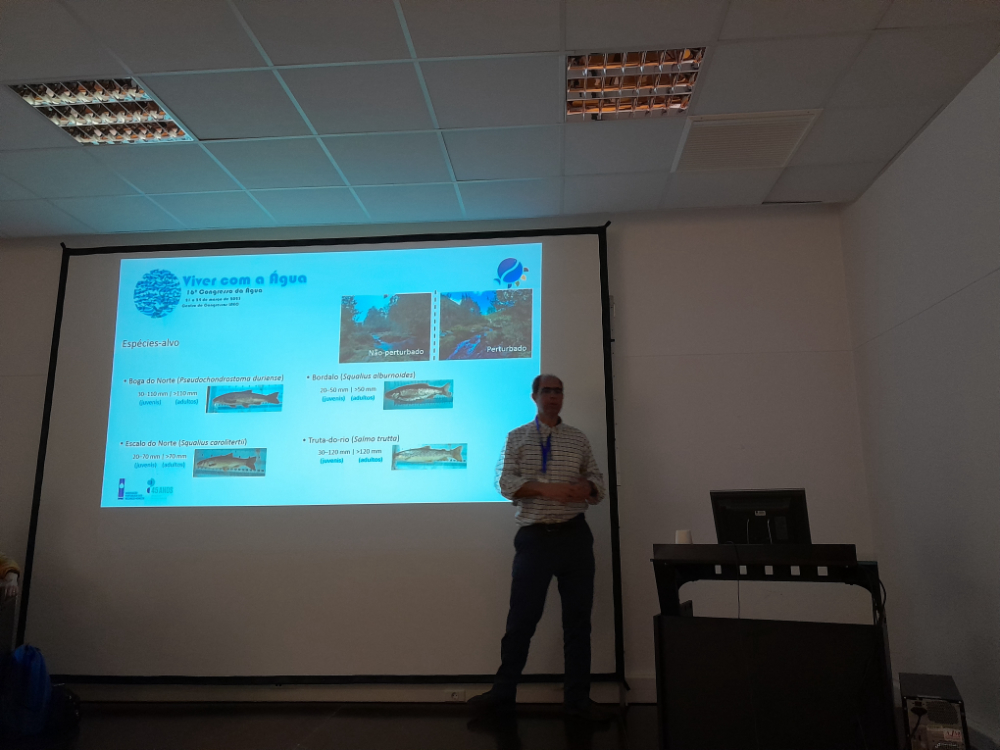

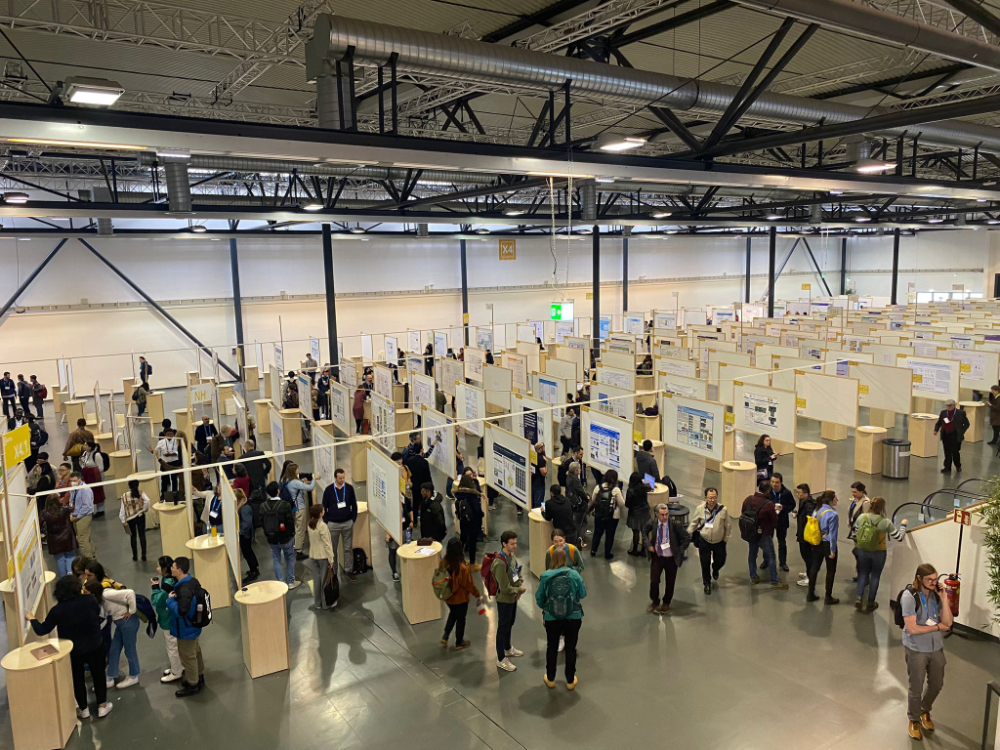
Presenting the latest results of EcoPeak4Fish at international conferences
In the first semester of 2023, the project researchers participated in diverse international conferences, to present the latest results of EcoPeak4Fish. Isabel Boavida (IB) presented at the European Geosciences Union (EGU) General Assembly 2023, which took place from the 23rd to the 28th of April in the charming city of Vienna, Austria. This massive assembly brings together worldwide geoscientists to participate in an extensive and constructive discussion that covers Earth, planetary and space sciences. IB presented in the session “Modeling and Design of Natural and Nature Based Features” showing the results from the flume experiments regarding the effectiveness of flow-refuges to mitigate hydropeaking for Iberian cyprinids. EGU23 was a great success with more than 18 000 attendees from more than 100 countries!
Maria João Costa (MJC) presented at the 2nd International Conference on Sustainability in Hydropower 2023 (SUSHP23) that took place from the 13th to the 15th of June in the beautiful city of Trondheim, Norway. During this conference, there were exciting and important discussions on how to improve the environmental sustainability of the hydropower sector from the perspective of the EU Water Framework Directive, the taxonomy of sustainable finance and the UN Sustainability goals. MJC presented “The benefits of artificial refuges as hideouts to pulsed flows for Iberian cyprinids” at the session “Hydropeaking and sustainable flexibility from hydropower”. The audience was quite enthusiastic about the outcomes, particularly regarding the effects of an invasive fish species on flow-refuge by Iberian barbels, the fish monitoring system, and the fruitful cooperation with the hydropower company Hidroerg.
Finally, José Maria Santos (JMS) represented the EcoPeak4Fish team at the Symposium for European Freshwater Sciences (SEFS13) that took place in the vibrant city of Newcastle Upon Tyne, England, from the 18th to the 23rd of June 2023. This conference, organized by the Freshwater Biological Association (FBA), takes place every two years, offering the opportunity for delegates to physically get together, collaborate and network for the first time in four years. It covers a multitude of urgent topics from freshwater biodiversity loss to river restoration and freshwater challenges and solutions in the context of climate change. JMS gave a talk at the Regular Session 11 – “Restoration and conservation (incl. nature-based solutions)” named “Effects of hydropeaking-induced flow variations on fish microhabitat use downstream from small hydropower plants”, where he assessed the effects of hydropeaking by small hydropower plants (SHP) on the seasonal and size-related microhabitat use by native leuciscids and salmonids, to understand how species habitat use at sites impacted by SHP peak-operations are affected when compared to reference ones.
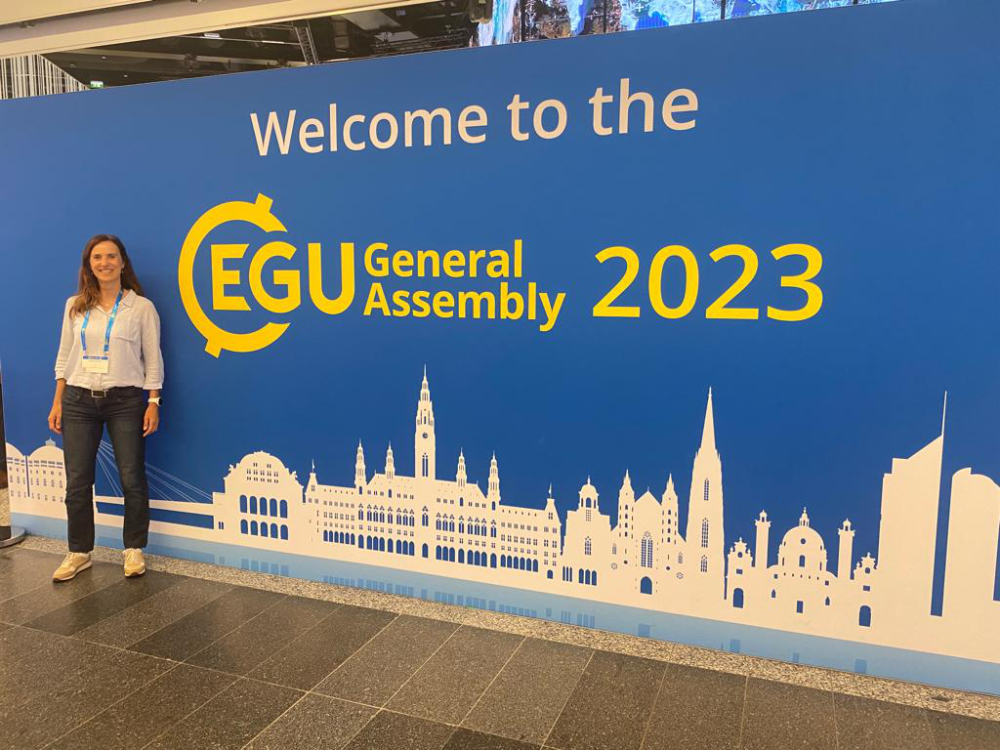
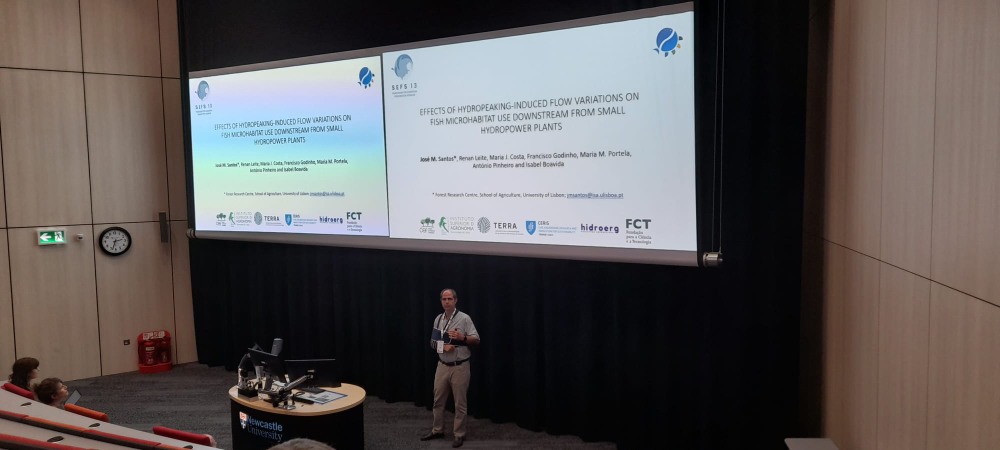
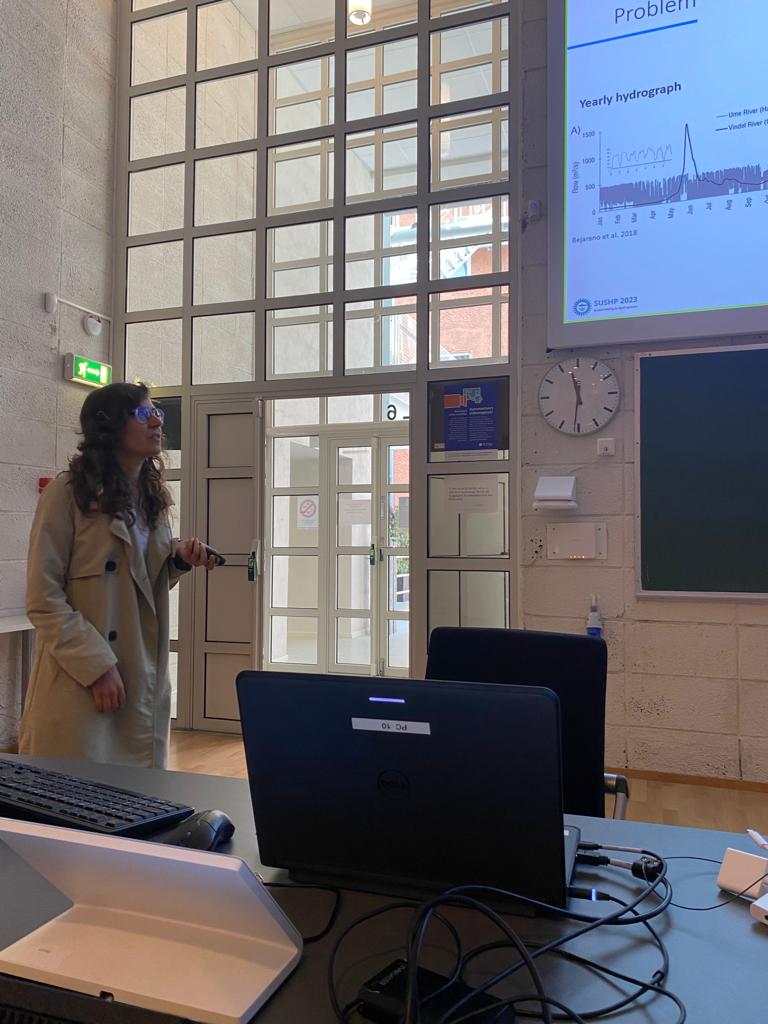

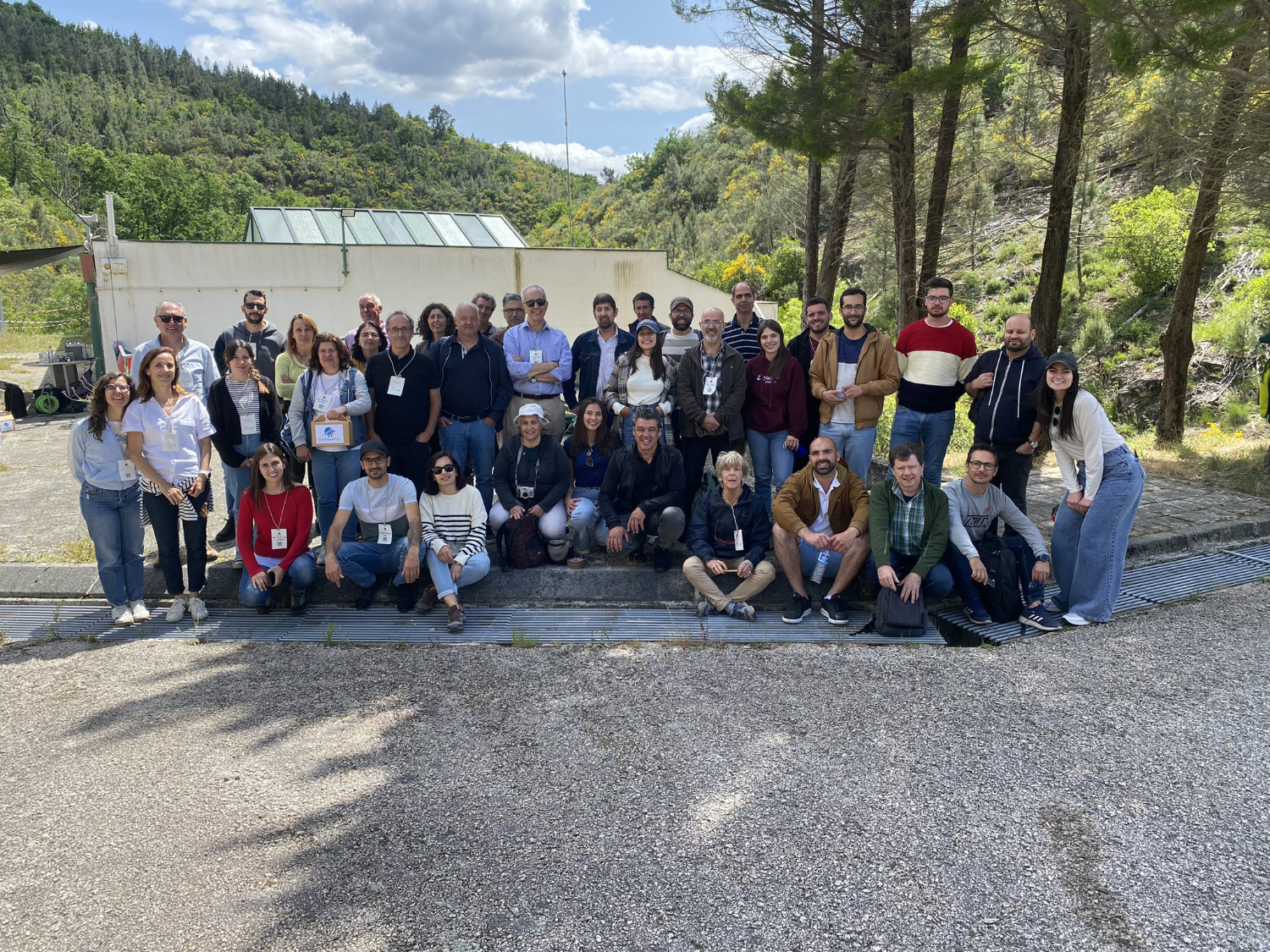
EcoPeak4Fish Disclosure Public Session in Boticas Municipality
The Disclosure Public Session of EcoPeak4FIsh took place in Boticas municipality this Spring, on the 12th of May 2023. Participants from different entities, such as ICNF, Iberdrola, EDP Produção, Instituto Português de Malocologia, local associations (Comunidade Local dos Baldios de Covas do Barroso, Movimento Rio Douro, Boticas Parque Natureza e Biodiversidade) and academia, with professors from Universidade de Trás-os-Montes e Alto Douro and students from Instituto Politécnico de Bragança led by professor Amílcar Teixeira, came to learn more about the project.
The event started in the Auditório Municipal Dr José S. Fernandes with an opening session from Dr Fernando Queiroga, President of Boticas Municipality. During this session, Isabel Boavida, researcher and project leader from IST, presented the project and a video about it. Maria Manuela Portela, professor at IST and stakeholder of Hidroerg presented the EcoPeak4Fish case studies, Bragado and Covas do Barroso Hydropower Schemes. António Pinheiro, professor at IST, brought an interesting wrap-up from the European project FITHydro: Fish Friendly Innovative Technologies for Hydropower. At the end of this session, José Maria Santos presented the fish habitat preferences in river reaches affected by hydropeaking, an output from Task 1 of the EcoPeak4Fish project. Finally, Maria João Costa showed the experiments with different flow refuges installed at the artificial flume in the Laboratory of Hydraulics from IST.
Under beautiful weather, the participants took part in a visit to the Covas do Barroso Hydropower Scheme. It started at Covas Weir and included a 2 km hike along the Couto Channel until de forebay. From this point on, it continued by bus until the powerhouse where a deserved lunch was served followed by a visit to the facilities. A video showing the underwater motion cameras was on for the participants to check the fish using the flow refuge installed downstream of Bragado and Covas do Barroso Hydropower Plants.
The event was a success thanks to all the participants who made it possible! Check out the video here!
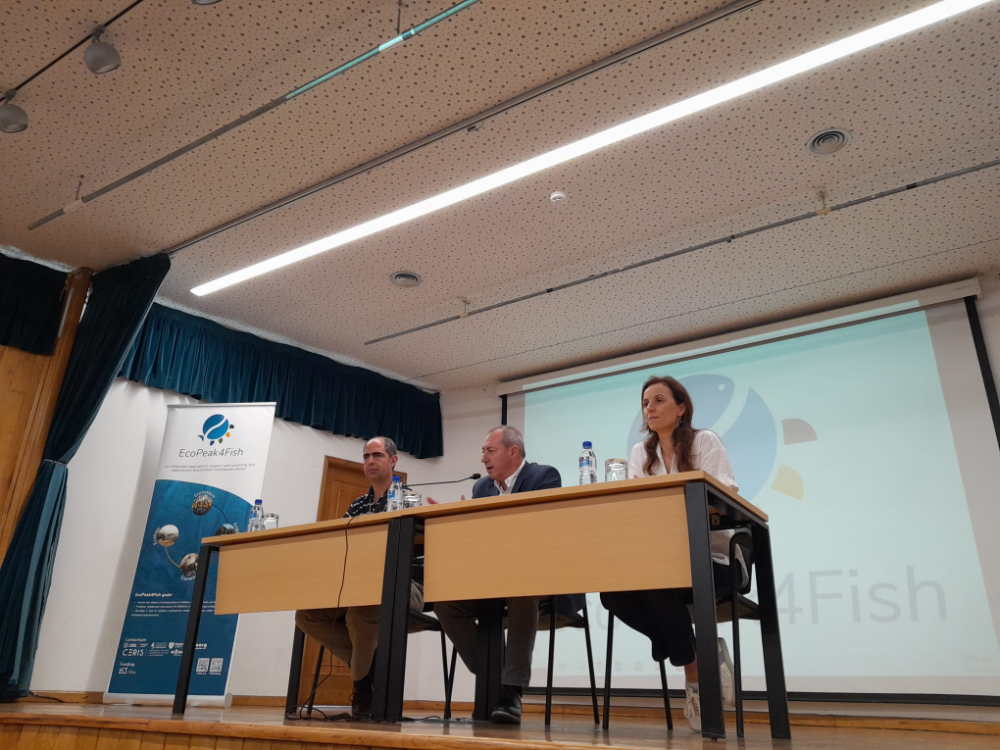
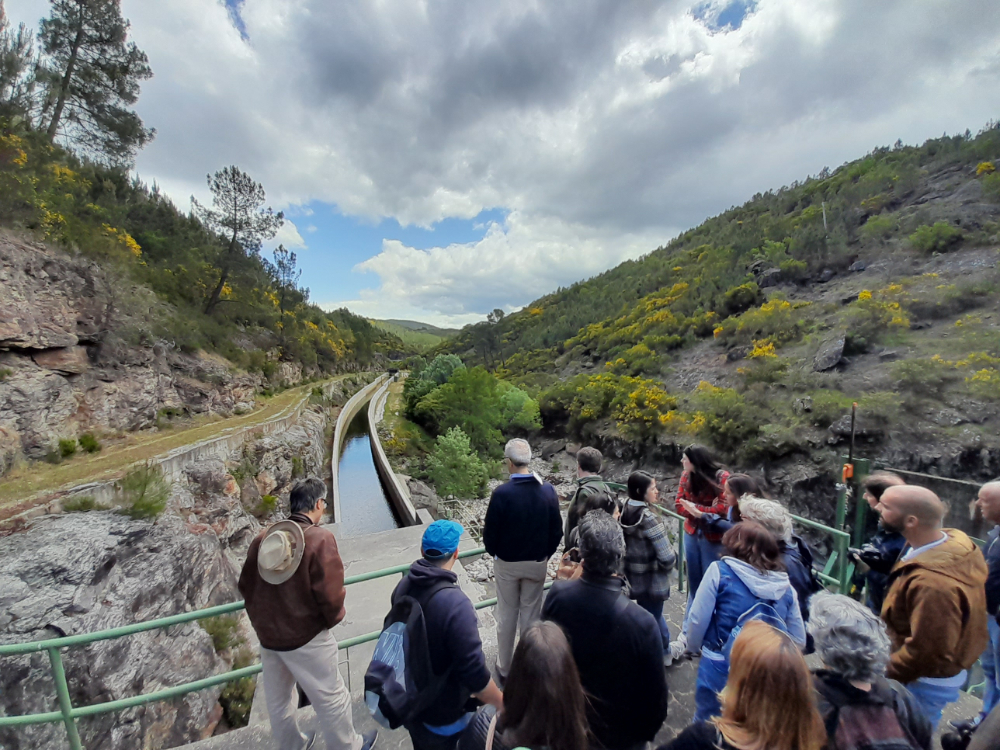
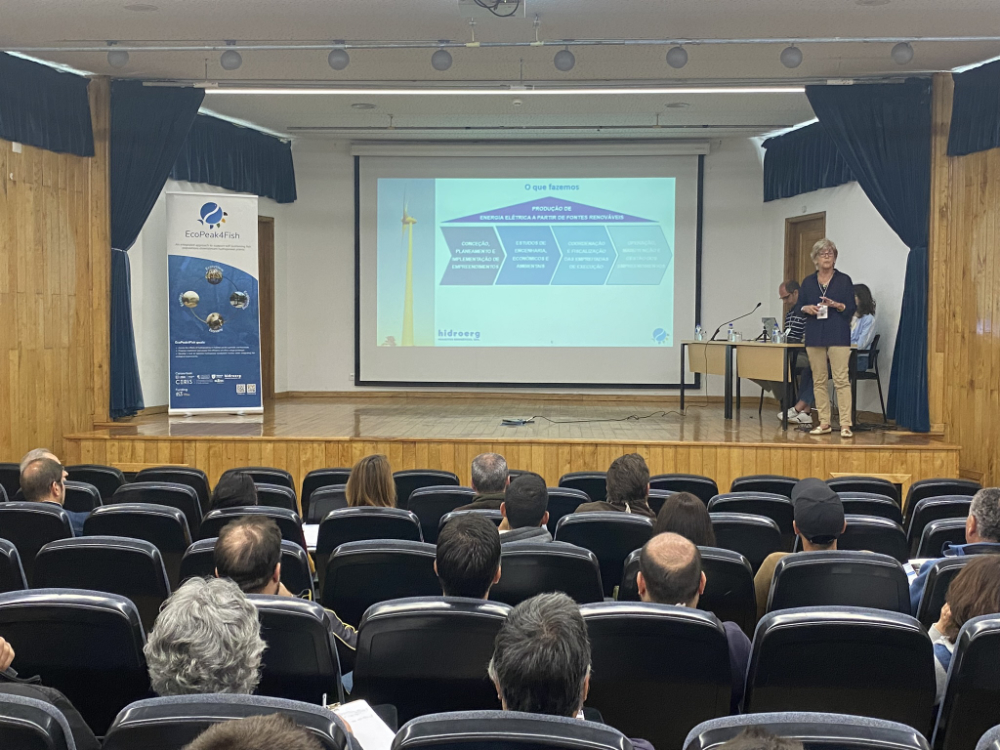

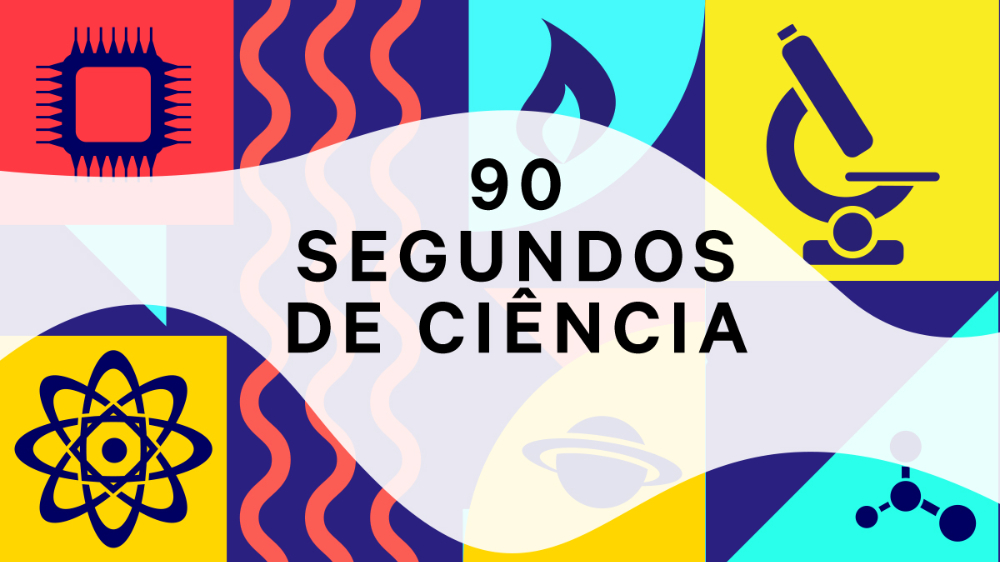
The EcoPeak4Fish at a national radio podcast
Isabel Boavida presented EcoPeak4Fish in the Portuguese podcast “90 segundos de ciência” (as in, 90 seconds of science). With more than 6 years on the air, this podcast which is broadcasted by the Portuguese radio station Antena 1, gives voice to Portuguese researchers, where they have a premium time to share their scientific projects, innovations and discoveries, from social to exact sciences and humanities.
Isabel Boavida, sharply wrapped up the EcoPeak4Fish project in 90 seconds, explaining how the team is committed to mitigating the impacts of hydroelectric dams on freshwater fish and their habitat.
If you want to take a peek, listen to it here. – of course, it is in Portuguese!

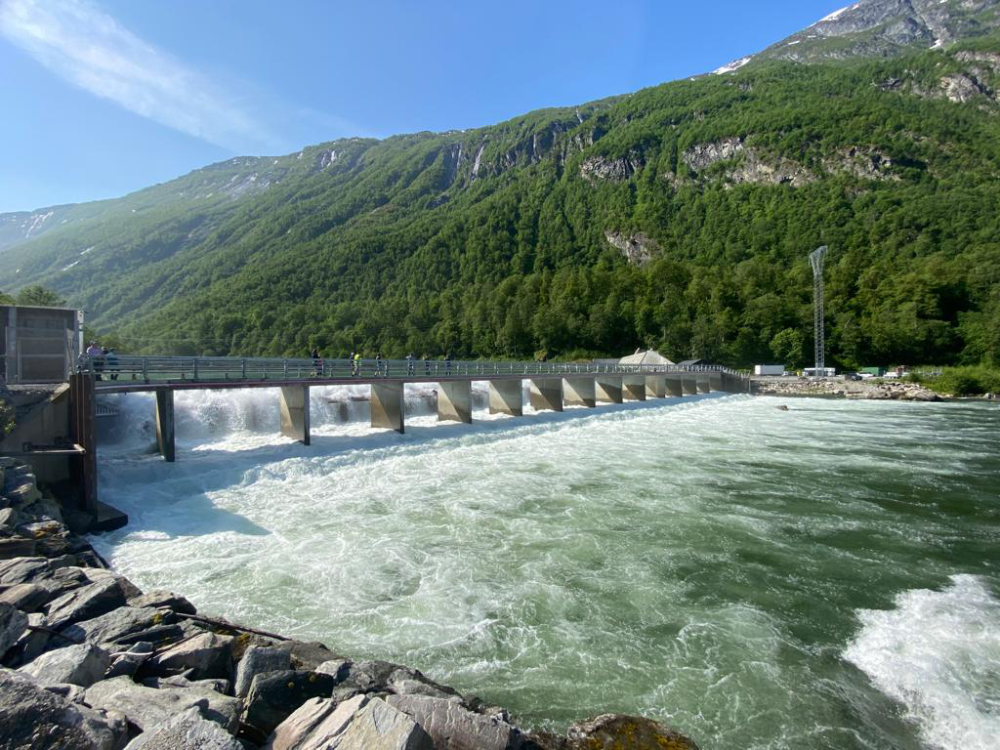
Learning Norway’s best practices in hydropower production
Within the SHAREe project, funded by EEA Grants Portugal, we travelled to Trondheim, Norway to visit different hydropower schemes representing best practices in sustainable hydropower, and to attend the 2nd International Conference on Sustainable Hydropower (SUSHP23).
After the conference, our NTNU colleagues and partners of the SHAREe project - Sustainable Hydropower to Alleviate and Reduce Environmental Externalities – guided us on a technical excursion to the Orkla, Surna, Driva and Gaula National Salmon Rivers to see hydropower schemes, restoration actions and innovative approaches in environmental design for Atlantic salmon, and sea trout.
A glimpse of what we have seen:
E-flows, by-pass valves, and ramping restrictions to mitigate hydropeaking;
Implementation of WFD and river restoration actions to cope with multi-pressures on riverine ecosystems;
A fish barrier as a temporary measure to eradicate a non-native parasite of Atlantic Salmon from the Driva River;
Salmon fishing and the touristic activities that flourish around it.
It was a great and insightful visit where we could observe the differences between Portugal and Norway regarding hydropower production schemes, river hydrology, fish ecology and river management. We are certain that this new perspective brought new ideas for research projects for the progress of sustainable hydropower in Portugal. Stay tuned!
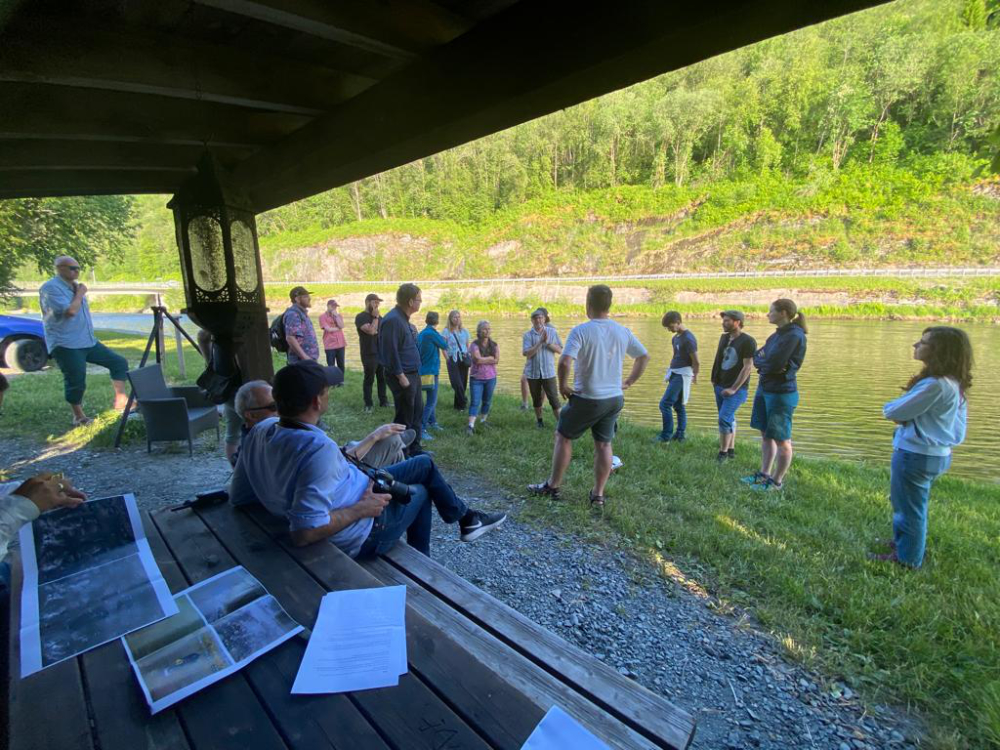
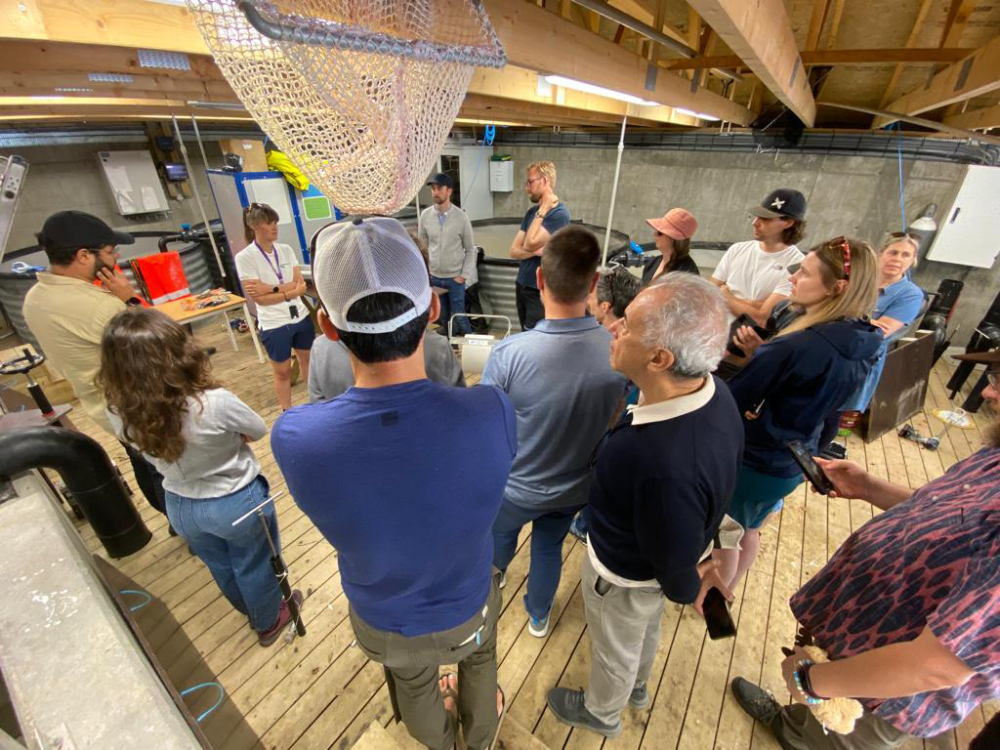
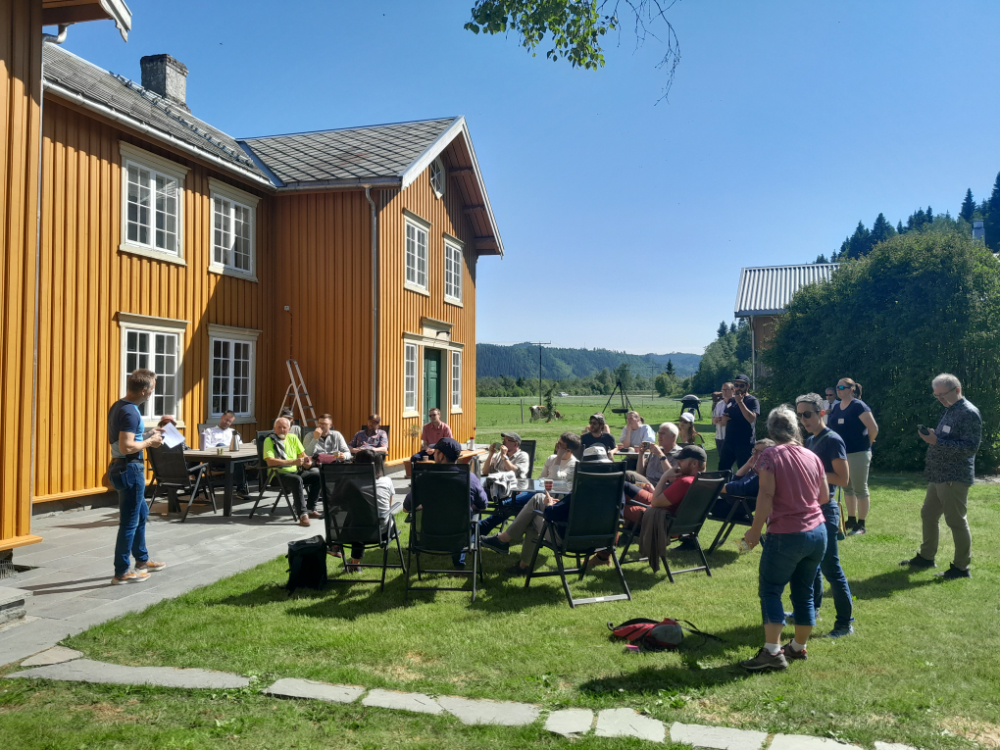

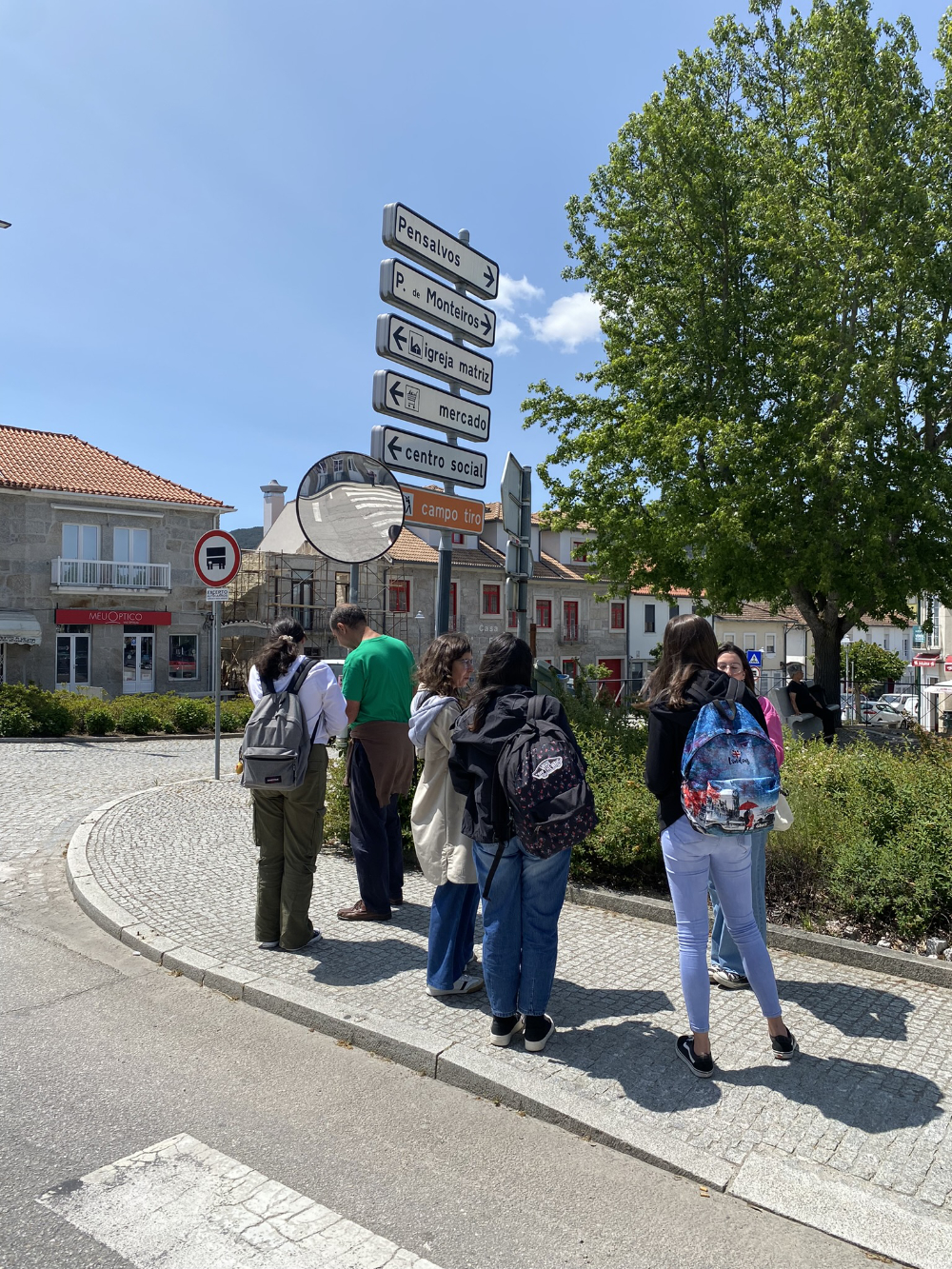
Interviewing the local community from Boticas and Vila Pouca de Aguiar Municipalities
The team members of EcoPeak4Fish interviewed the inhabitants of these two municipalities to identify the ecosystem services provided by small hydropower plants and the riverine ecosystem. From 10th to 11th May 2023, EcoPeak4Fish team members Isabel Boavida, José Maria Santos, Maria João Costa and Mariana Azevedo went out to the streets of Boticas and Vila Pouca de Aguiar (NE Portugal) to conduct live questionnaire surveys to assess people’s affinity for ecosystems services. Specifically, the questionnaires consisted of 27 questions and aimed to evaluate the ecosystem services used by the local communities in riverine areas close to Covas do Barroso (Boticas municipality) and Bragado (Vila Pouca de Aguiar municipality) small hydropower plants.
This task is also part of the MSc dissertation of Mariana Azevedo. Overall, more than 100 responses were collected from both municipalities, which are now being screened and analysed. People were very receptive to our questions, and it was remarkable to verify their connection to the river, especially anglers! The results are expected to be available by the end of autumn.
